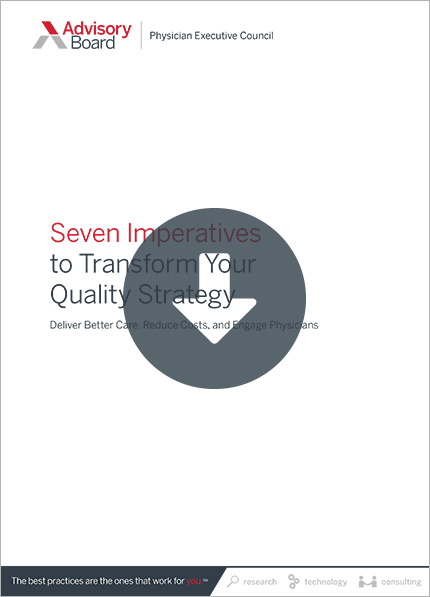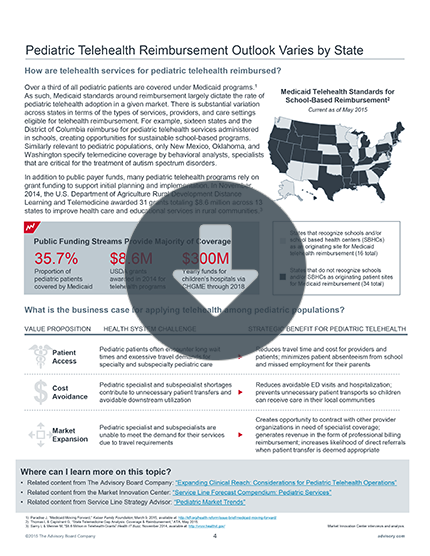Auto logout in seconds.
Continue LogoutIn neonatal intensive care units (NICUs) it's not uncommon to poke and prod infants to run labs, but each invasive procedure increases the risk of infection. Intermountain Healthcare's Dixie Medical Center adopted a program to reduce that risk—and saw big improvements in patient safety in and reduced operation costs, Christopher Cheney writes for HealthLeaders Media.
Your cheat sheet on pediatric telehealth
R. Erick Ridout, a neonatologist at Dixie Regional, explained that NICU "babies are routinely put through pokes, and labs are run every Monday, Wednesday, and Friday to demonstrate babies are normal." But he added not every baby requires those procedures. "If we look at a pre-term baby who is thriving, gaining appropriate weight every day, with normal temperature—checking all the boxes—conducting labs on that baby to make sure it is normal does not help. It hurts the baby," Ridout said.
Jeannette Cutner, a nurse manager at Dixie Regional, explained, "We knew that every time we punctured their heels over a 24-hour period there was an increased chance of sepsis. We knew that if we kept lines in for longer than seven days, there was an increased chance of central line-associated bloodstream infections (CLABSI)."
So in 2008 the hospital launched a program called POKE—preventing pain and organisms from skin and catheter entry—to reduce unnecessary invasive procedures.
Creating POKE
To get the program off the ground, first, the hospital had to frame the conversation appropriately.
Ridout said, "The most important first step was aligning the team under the idea of all care needing to be value-added, and care that was not value-added represented harm."
Another challenge was the lack of literature on the difference between invasive procedures that add value in the NICU and those that don't.
So the hospital assembled a "highly engaged team" to start gathering data. "We first started out rudimentarily on paper, then we programmed a database to record every single decision we made and what it meant on behalf of the patient," Ridout said.
Patient observation was key to the success of POKE, Ridout said, as NICU staff were able to rely on "the reams of data the baby already provides."
Positive results
Since implementing the POKE program, Dixie Regional has seen positive results. For example:
- Over 11,000 "pokes" have been avoided;
- Operational costs are down by 28%; and
- Length of stay is down by 21%.
Based on those results, POKE has been implemented at other intermountain hospitals as well as in several other health systems, including Loma Linda University Health, University of Alabama at Birmingham, and Florida Hospital, Cheney reports (Cheney, HealthLeaders Media, 4/16).
Your cheat sheet on pediatric telehealth
This primer describes trends in the application of telehealth technologies to provide care for pediatric patient populations
Download it now to get definitions of key terms, discussion of investment considerations, and a sample case study from a leading health care organization with an established pediatric telemedicine program.
Don't miss out on the latest Advisory Board insights
Create your free account to access 1 resource, including the latest research and webinars.
Want access without creating an account?
You have 1 free members-only resource remaining this month.
1 free members-only resources remaining
1 free members-only resources remaining
You've reached your limit of free insights
Become a member to access all of Advisory Board's resources, events, and experts
Never miss out on the latest innovative health care content tailored to you.
Benefits include:
You've reached your limit of free insights
Become a member to access all of Advisory Board's resources, events, and experts
Never miss out on the latest innovative health care content tailored to you.
Benefits include:
This content is available through your Curated Research partnership with Advisory Board. Click on ‘view this resource’ to read the full piece
Email ask@advisory.com to learn more
Click on ‘Become a Member’ to learn about the benefits of a Full-Access partnership with Advisory Board
Never miss out on the latest innovative health care content tailored to you.
Benefits Include:
This is for members only. Learn more.
Click on ‘Become a Member’ to learn about the benefits of a Full-Access partnership with Advisory Board
Never miss out on the latest innovative health care content tailored to you.


